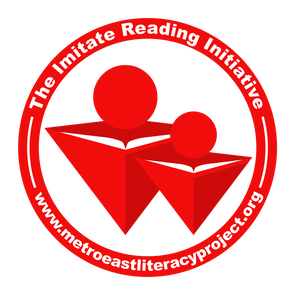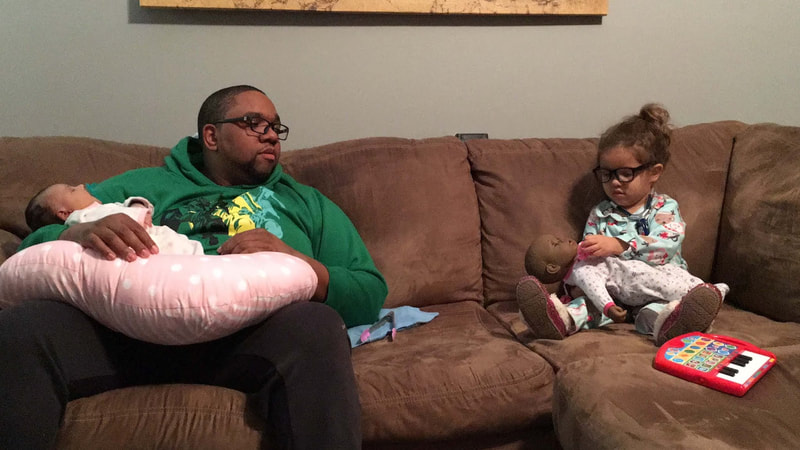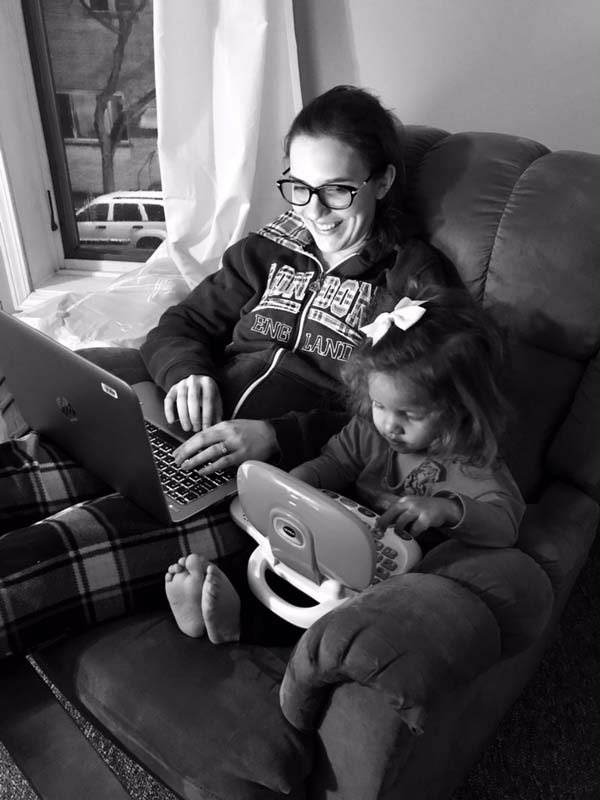I READ, THEY READ
The Imitate Reading Initiative is a free book-sharing program for parents and caregivers. The objective is that parents will read to learn, to succeed, and to model reading for their children. At around 12 months of age, children will begin to copy and intentionally imitate the behaviors, mannerisms, and actions of their parents. For instance, we have all seen how a child will copy a parent talking on a phone, stirring a pot on a stove, or simply waving goodbye.
We all know the importance of parents reading to their children every day. It benefits the child's language and socio-emotional development, imagination and builds bonds between the parent and child. Yet, there is less dialogue about the importance of parents modeling reading to their children by establishing their own reading habits in the home. Modeling is not necessarily the mechanics of reading. It is more about creating the culture, enthusiasm, and interest in reading. That is why it does not matter what the reading level is of the parents. Any parent can browse through a book or make up their own story when reading to a young child. There are numerous programs in the United States that give free books to children. The purpose of this unique Imitate Reading Initiative is to distribute free books to parents so that they can harness the power of imitation to create a culture of reading at home.
This is just one tool in a toolbox of strategies to help children become proficient readers by the end of third grade, or any grade, for that matter. According to the Campaign for Grade Level Reading, 67% of children and 80% of low-income children in this nation are not reading proficiently by the end of third grade. (see Campaign for Grade Level Reading). It matters because research shows these children are less likely to finish high school and avoid incarceration. Low reading proficiency is often a barrier to seizing opportunities for serving in the military, engaging in new technologies, climbing out of intergenerational poverty, and in general, succeeding in the global economy. Sounds bleak, but the problem is not intractable. Taking actionable steps based on the Five Pillars of Family Literacy is another strategy to tackle the issue of low third grade reading level proficiency. The Metro East Literacy Project, along with many other literacy-focused organizations such as Turn the Page STL and St. Louis Black Authors, is working everyday to bring awareness and solutions to the challenge of helping children read on grade level.
This is just one tool in a toolbox of strategies to help children become proficient readers by the end of third grade, or any grade, for that matter. According to the Campaign for Grade Level Reading, 67% of children and 80% of low-income children in this nation are not reading proficiently by the end of third grade. (see Campaign for Grade Level Reading). It matters because research shows these children are less likely to finish high school and avoid incarceration. Low reading proficiency is often a barrier to seizing opportunities for serving in the military, engaging in new technologies, climbing out of intergenerational poverty, and in general, succeeding in the global economy. Sounds bleak, but the problem is not intractable. Taking actionable steps based on the Five Pillars of Family Literacy is another strategy to tackle the issue of low third grade reading level proficiency. The Metro East Literacy Project, along with many other literacy-focused organizations such as Turn the Page STL and St. Louis Black Authors, is working everyday to bring awareness and solutions to the challenge of helping children read on grade level.
For more details about implementing the Imitate Reading Initiative in your school district, early childcare center, preschool or family organization, contact [email protected] or call 618-702-9076. Also, to help spread the message, please request a strip of Imitate Reading Initiative stickers to place on the books you donate. Thank you so much for your support.






